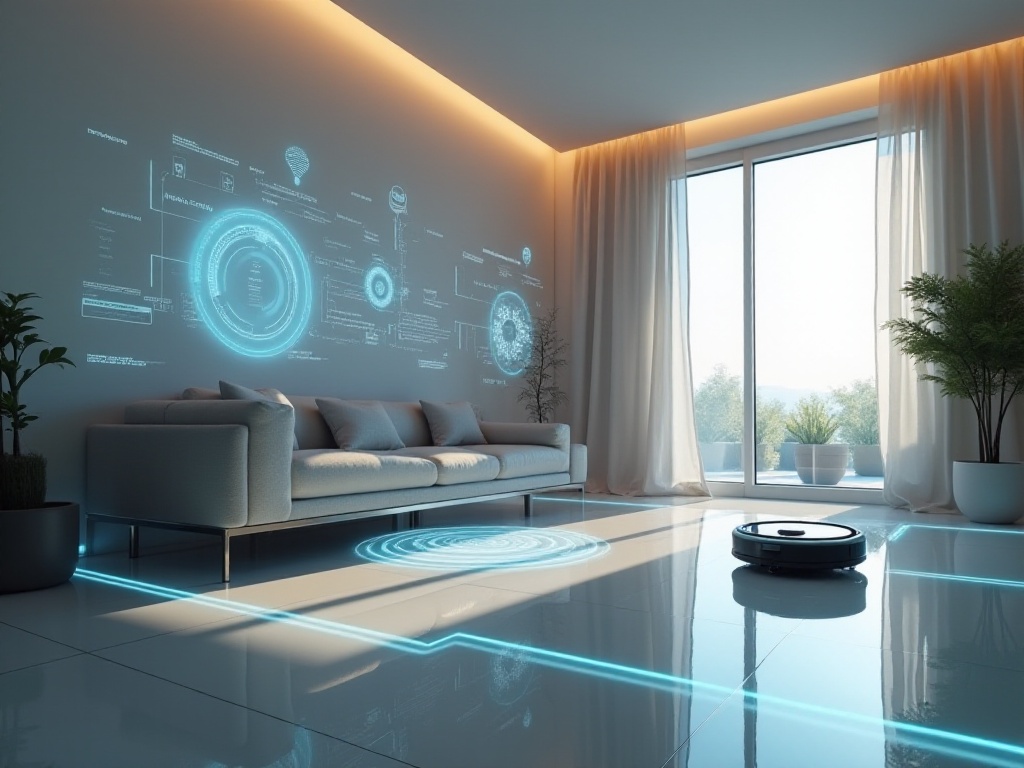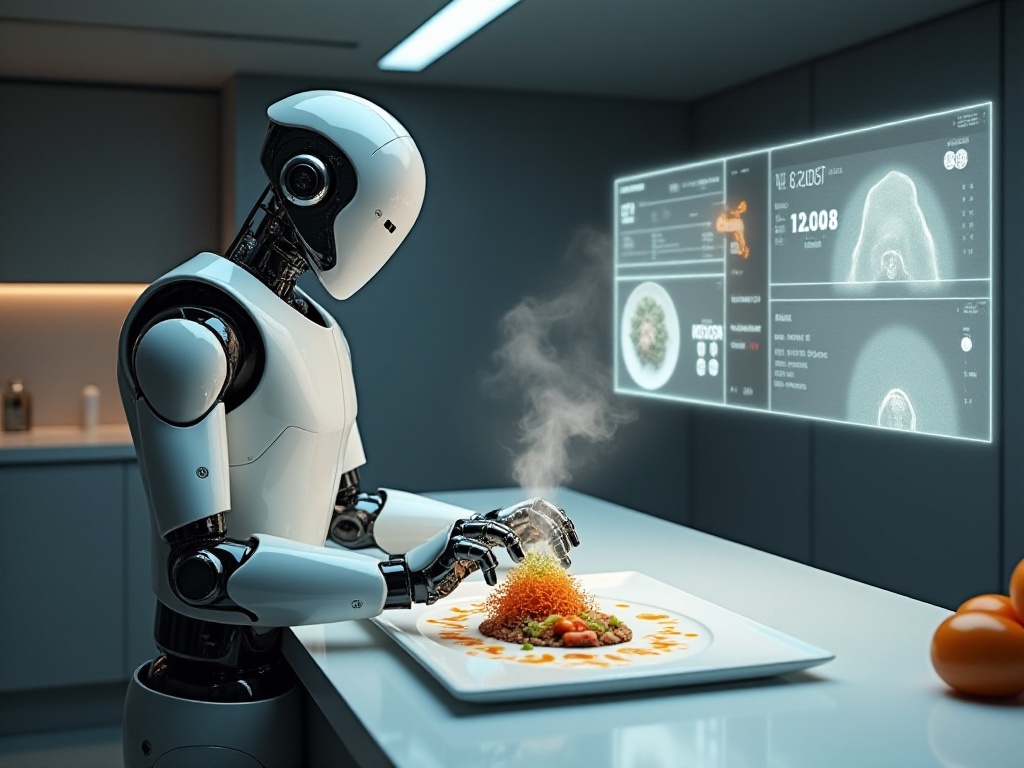Opening
I still vividly remember my first conversation with Siri. It was on a sunny afternoon when I carefully said "Hey Siri" to my newly acquired iPhone. When the phone actually responded to me, that feeling of excitement mixed with uncertainty was like suddenly having a magical talking companion. As a tech blogger who has been studying AI since college, I've witnessed intelligent assistants evolve from taking baby steps to today's rapid advancement. Today, I want to discuss intelligent assistants, not simply listing what they can do, but sharing my deep thoughts on how they're changing our way of life.
The Evolution of Assistants
From the earliest Siri to today's ChatGPT, the evolution speed of AI assistants is simply astounding. I remember last summer, I conducted an interesting comparison experiment. I brought together the 2016 version of Siri and the latest ChatGPT, asking them to complete the same task: writing an article about climate change. Siri could only mechanically recite content from Wikipedia, with dry language, like reciting a textbook. Meanwhile, ChatGPT could not only write a well-structured article with clear arguments but also adjust the tone according to my requirements, add vivid examples, and even mimic different writing styles. This experiment made me truly feel the leap in progress of AI assistants.
Current AI assistants are no longer just simple tools but have become indispensable partners in our lives. According to the latest statistics, the global intelligent assistant market size reached an astounding $62.7 billion in 2023, and this number continues to climb, expected to exceed $100 billion by 2025. Behind this enormous market size reflects people's increasing dependence on AI assistants.
According to Gartner's latest survey report, 76% of users worldwide now use intelligent assistants at least once daily, an increase of 30 percentage points from 2020. Think carefully, this data isn't exaggerated at all. Using voice assistants to check weather and schedules in the morning, having navigation assistants plan optimal routes on the way to work, letting AI assistants help organize meeting notes at work, controlling home appliances with smart speakers after returning home... Without realizing it, AI assistants have penetrated every aspect of our lives.
Even more amazing is the learning ability of AI assistants. They don't simply execute fixed instructions but can continuously evolve through machine learning. For instance, they remember your habits and preferences, proactively recommending the most suitable options. My AI assistant knows what type of music I like to listen to in the morning, when traffic is most likely to be congested, and even knows my coffee preferences inside out.

Life Rewritten
Speaking of changes brought by AI assistants, my personal experience might be most convincing. Last year, I started using intelligent assistants comprehensively to manage my schedule, a decision that completely changed my way of working. It not only reminds me of various meetings and to-do items on time but also recommends the best departure time based on my habits. Even more intelligently, it monitors traffic conditions in real-time and automatically adjusts routes if it detects congestion, ensuring I can arrive at my destination on time.
Data shows that users who use intelligent assistants for schedule management save an average of 3.5 hours per week. While this saved time might seem minimal, it adds up to 182 hours a year, equivalent to 7.5 full days! Think about it, that's like having an extra mini vacation.
In home scenarios, the convenience of AI assistants is even more surprising. I remember once when I was busy in the kitchen making a complicated dish, both hands covered in flour. Suddenly realizing the living room temperature needed adjustment, previously I would either have to wash my hands first or just endure it. But now, I only need to say a word to the air, and the smart temperature control system automatically adjusts to the appropriate temperature. According to the latest data from the Smart Home Association, households equipped with AI assistants can save 15% in energy consumption monthly, which is not only environmentally friendly but also saves us a considerable amount on electricity bills.
AI assistants also perform excellently in entertainment. They can recommend movies and music based on my mood and preferences, with very high accuracy. Sometimes I feel they understand my tastes better than I do myself. Statistics show that users using AI recommendation systems have 35% higher satisfaction in content exploration compared to traditional recommendations.
In learning and work scenarios, AI assistants' role is even more irreplaceable. They can help us quickly summarize long documents, extract key information, and even act as temporary translators. I often use them to help translate various professional literature, with accuracy that can now rival professional translators. One study shows that with AI assistants, professionals can improve their literature reading efficiency by over 60%.
In social scenarios, AI assistants are also playing an increasingly important role. They can help us write emails, edit copy, and even give social advice. Many workplace newcomers have reported that with AI assistants' help, they feel more confident in handling various social situations. Statistics show that about 65% of young professionals say AI assistants have helped improve their workplace social skills.

Potential Risks
As a rational observer, I must point out the potential problems brought by AI assistants. The primary concern is privacy and security. Every word we say, every command we give, and even our daily conversations might be recorded and analyzed. How this data will be used and whether it will be accessed by third parties are issues worth attention. According to authoritative institutions, there were over 1,000 AI assistant-related privacy breach incidents globally in 2023, a number that truly raises alarm.
Second is the dependency issue. As AI assistants become increasingly powerful, we seem to be gradually losing some basic abilities. I often find myself too lazy to do simple calculations mentally, letting AI assistants do it instead. More worryingly, about 45% of young people admit they would feel anxious and uneasy without AI assistants. This overdependence might lead to gradual deterioration of our independent thinking and problem-solving abilities.
Another easily overlooked issue is the information cocoon. AI assistants tend to recommend content that matches our tastes, which seems thoughtful but might narrow our perspectives. According to one study, users who rely long-term on AI recommendations encounter 30% fewer types of information than regular users. This means we might miss many valuable different viewpoints and new things.
Furthermore, AI assistants might affect the authenticity of interpersonal relationships. Many people now habitually use AI to write emails, send messages, and even handle relationship issues. While this approach is efficient, it might make interpersonal interactions become too formulaic and lack genuine emotion. Studies show that people who overly rely on AI for social interactions show noticeable decline in face-to-face communication skills.
Another noteworthy issue is the digital divide. As AI assistants become increasingly important, those who cannot access or use these technologies might be at a greater disadvantage in social competition. Data shows that in developing countries, less than 30% of the population can regularly use AI assistants, a gap that might further exacerbate social inequality.

Future Outlook
Looking ahead, AI assistants' development trends mainly focus on two directions: deeper personalization and stronger proactivity. Personalization isn't just about remembering user preferences, but truly understanding users' personalities, emotions, and needs. Microsoft Research's latest report shows that next-generation AI assistants will be able to accurately identify users' emotional states and adjust interaction methods accordingly. For example, when detecting that a user is feeling down, it will proactively provide warm comfort or positive suggestions.
In terms of proactivity, future AI assistants will no longer just passively wait for instructions but will proactively predict user needs. Imagine when you're preparing for a business trip, AI assistants will automatically help plan your itinerary, book flights and hotels, and remind you what clothes to pack based on the destination's weather. According to industry predictions, by 2025, AI assistants' proactive service accuracy will reach above 90%.
Even more exciting is that AI assistants will play a bigger role in education. They can provide personalized teaching content and tutoring plans based on each student's learning characteristics and progress. Research predicts that students using AI-assisted teaching can improve learning efficiency by over 40%.
In healthcare, AI assistants will also play more important roles. They can not only monitor users' health conditions but also provide timely health advice and warnings. It's predicted that by 2026, about 70% of households will be equipped with health monitoring AI assistants.

Practical Advice
After saying all this, many people might ask: how should we better use AI assistants? My suggestion is: treat it as an enhancement tool, not a replacement. At work, let AI assistants handle repetitive, mechanical tasks, but rely on your own judgment for key decisions.
According to McKinsey's research report, those who best utilize AI assistants typically delegate 80% of routine tasks to AI but only use AI as a source of inspiration for work requiring creativity and judgment. This balanced usage approach can improve work efficiency by about 40% while avoiding over-reliance on AI.
In daily life, I suggest developing a habit of "conscious use." For example, don't rely on AI for every small problem, maintain moderate independent thinking ability. You can establish a usage rule: handle simple calculations and decisions yourself, only seeking AI help for complex tasks.
Regarding privacy issues, I suggest paying attention to the following points when using AI assistants: regularly clear history records, don't share overly private information, use encryption protection for important personal information. Statistics show that users who develop these habits have 50% lower risk of privacy breaches.
In social aspects, maintain authenticity. Although AI can help us write perfect emails and messages, sometimes having some human "imperfections" actually feels more sincere. Research shows that people who completely rely on AI for social interactions generally have lower satisfaction in interpersonal relationships.

Conclusion
Looking back ten years ago, we were still amazed by how smartphones changed our lifestyle. Now, AI assistants are bringing about an even bigger transformation. This isn't just technological progress, but a lifestyle innovation. We're standing at the threshold of a new era, where AI assistants are like our second brain, helping us better cope with this rapidly changing world.
But remember, technology ultimately serves people. What we need to do is learn to coexist harmoniously with this "digital assistant," letting it become a force for improving life quality, not the master dominating our lives. After all, this isn't just about efficiency, but about our future way of life.
What do you think? What changes have AI assistants brought to your life? Welcome to share your thoughts and experiences in the comments section. Let's discuss together how to live better in this AI era.








